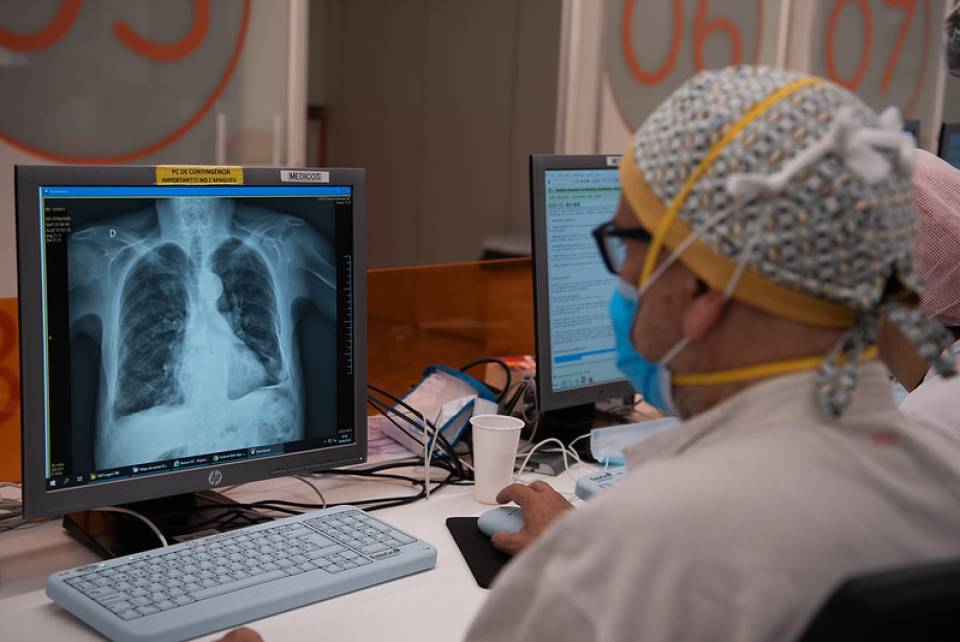Currently, there is not enough reliable data on the mid- and long-term consequences of pneumonia caused by COVID-19. One study described that more than half of patients who had to be admitted to hospital due to the SARS-CoV-2 virus continued to present symptoms two months after the start of the illness, with fatigue and dyspnoea (a feeling of shortness of breath) being the most common.
At the pulmonary level, a recent article analyses patients discharged from intensive care units after suffering a serious illness. It is observed that 40% display changes to respiratory function a month after discharge, although the large majority of patients can carry out their day-to-day activities with no restrictions. However, the study was carried out on a small group of patients, with all the limitations this involves.
In the Pneumocovid study, which involved more than 200 patients admitted to Hospital Clínic with serious COVID-19, approximately 25% of patients presented changes to respiratory function three months after being discharged from hospital. Various investigations in this field, which are still being carried out, will determine the real impact of the after-effects of this disease, especially those that persist in the mid- and long-term, in other words, 6 and 12 months after the serious illness caused by COVID.
One of the scientific community’s main concerns regarding the potential after-effects of COVID-19 infection is the development of pulmonary fibrosis.
Pulmonary lesions can be observed in x-ray images of some patients admitted due to COVID. These can be precursors to pulmonary fibrosis. The current hypothesis is that these lesions are a result of the inflammation caused by the virus itself, along with the consequences of mechanical ventilation in patients who require intubation. Although the full impact of the lesions is currently unknown, various centres are monitoring these patients to be able to detect the potential development of pulmonary fibrosis early, including post-COVID consultation at Hospital Clínic.
In conclusion, the mid- and long-term after effects of COVID-19 are still not well understood. A high number of cases have been documented with persistent symptoms following the acute phase, without any clear relation to the severity of the illness. At the pulmonary level, it is known that a significant percentage of patients who have had a serious form of the illness present changes to respiratory function after three months of being discharged from hospital. Over the coming months, determining both the real incidence of after-effects and how to treat them is of high importance, in order to understand the full impact of pneumonia caused by COVID-19 in patients.
Authors: Jacobo Sellarés, director of the Interstitial Lung Disease Working Group, and Oriol Sibila, Head of Department at the Hospital Respiratory Care. Pulmonology Department at Hospital Clínic de Barcelona




